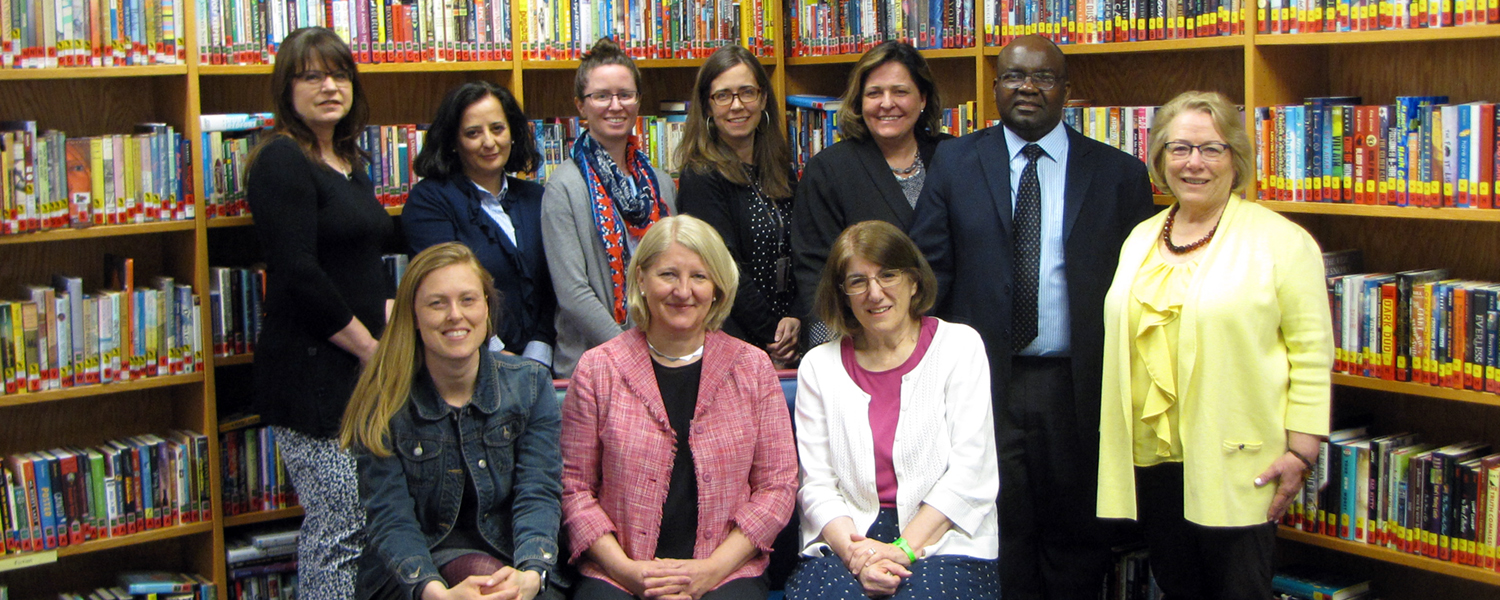An interdisciplinary team of 91Ď㽶ĘÓƵ University faculty will participate in a $13.3 million USAID grant to improve educational outcomes for Nigerian children.
Nigerian educational statistics are among the worst in the world. Because of early marriages, the Almajiri system, poor investments in education and the low quality of teachers, a total of 10.5 million children (majority girls) are out-of-school in Nigeria. Sixty percent of those children are in Northern Nigeria.
The insurgency in Northeast Nigeria has been going on for over a decade, affecting more than 14 million people; 1.7 million of them are currently displaced in the northeastern states of Borno, Adamawa and Yobe, with some indirect impacts on the states of Gombe, Bauchi and Taraba.
This grant seeks to build upon prior USAID work to improve educational outcomes while addressing the psychosocial well-being of children — especially girls — in Northeast Nigeria. The partners aim to:
- Increase the capacity of education managers by 100, emphasizing female leaders;
- Reach 200 schools;
- Improve the teaching skills of 5,000 teachers and provide additional skills and support for female teachers; and
- Impact 200,000 students in Northeast Nigeria, Gombe and Adamawa states
The grant, in the amount of $13,361,362, will be divided between the American University of Nigeria ($7,887,419) and its partners, 91Ď㽶ĘÓƵ University ($3,940,113) and The Earth Institute, Center for Sustainable Development, at Columbia University ($1,533,830).
The team will work with local and state partners on the ground in Nigeria, from colleagues at American University of Nigeria (AUN) to community and religious leaders, teachers and families. Families and schools will be connected and supported by community education workers who will be trained to help advocate for enrollment and needs of children and act as a bridge between communities and schools.
Culturally and educationally appropriate educational materials will be provided to classrooms and schools, including materials that are gender-sensitive and which provide psychosocial support for conflict-related issues. Content will be co-designed by the grant partners with an emphasis on portability and replication, using primarily locally sourced materials. Samples of such materials include:
- The PLAN Classroom-based Learning Labs for Nigeria (PLAN = Portable Literacy and Numeracy);
- PLAN School-based Library Labs for Nigeria;
- Nigeria-Specific Educational Story-based App; and
- A digital repository, accessible via cell-phone.
Amy Reynolds, Dean of the College of Communication and Information at 91Ď㽶ĘÓƵ University said of the grant: “This partnership will positively impact a generation of girls and women leaders in Nigeria. It is life changing. The learning and library labs, the storytelling app and the digital repository are powerful examples of the creative and innovative work that happens when faculty work together across disciplines. I’m excited to see the collective efforts of our colleagues come to life with this grant.”
The U.S. Agency for International Development administers the U.S. foreign assistance program providing economic and humanitarian assistance in more than 80 countries
worldwide.
American University Nigeria
Audu Liman, Ph.D., Project Lead
Garba Bakori Isa, Key Person
Grace Malgwi, Ph.D., Key Person
Ibrihim Damare, Key Person
91Ď㽶ĘÓƵ University
Marianne Martens, Ph.D., PI
Joanne Caniglia, Ph.D., Co-PI
Gretchen Caldwell Rinnert, M.G.D., Co-PI
Kathleen Campana, Ph.D., Key Person
Lala Hajibayova, Ph.D., Key Person
Davison Mupinga, Ph.D., Key Person
Timothy Rasinski, Ph.D., Key Person
Valora Renicker, M.F.A., Key Person
Linda Robertson, Ph.D., Key Person
Allison Bates, M.A., Project Manager
The Earth Institute, Center for Sustainable Development, Columbia University
Radhika Iyengar, Ph.D., PI
Tara Stafford Ocansey, Key Person
Haein Shin, Key Person


